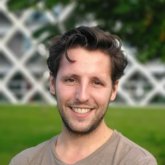EngD position: Design and evaluation of a membrane process for the recovery of ethanol from high pH media
Are you passionate about applying membrane technology to make industrial processes more efficient and sustainable?
We offer a challenging Engineering Doctorate position in the Membrane Process Technology group.
You will design and evaluate a membrane technology based-process for the recovery of ethanol and caustic from alkaline-ethanol media at high pH.
In Europe alone, each year hundreds of million tons of valuable materials are lost in industrial processing. To increase the yield of these processes, it is important to reduce and/or valorise waste streams. Therefore, various processes that involve the use of alcohols as (anti)solvents and the application of pH switches to recover and purify valuable compounds from waste streams in the biotech and chemical industry have been developed. However, the recovery of (anti)solvents using conventional techniques like distillation requires large amounts of energy.
Membrane technology could be an alternative separation technology to make the biotech, chemical and other industries more circular, flexible and energy-efficient.
The Recircanol project was set up to study the recovery of ethanol from alkaline-ethanol media at high pH using membrane technology. In this project, Greencovery, Pervatech, SolSep, Nobian, ISPT and the University of Twente closely collaborate to generate new scientific and technological knowledge on pH-stable and solvent-resistant nanofiltration membranes for use at alkaline conditions, and on pervaporation membranes for the purification of valuable components and/or the recovery of (anti)solvents.
As EngD student in the Recircanol project, you will:
- Design membrane-based separation processes for the recovery of ethanol from alkaline-ethanol media at high pH, with a special focus on Greencovery’s process.
- Perform lab- and/or module-scale nanofiltration experiments to support or validate your process design with real measurement data.
- Assess the techno-economic feasibility of your designed processes for use in industrial applications characterized by extreme pH.
You will work closely together with the PhD student in the project, who scientifically evaluates nanofiltration membranes and membrane modules.
The Recircanol project is funded via the Top consortium for Knowledge and Innovation (TKI) Energy and Industry. You will closely collaborate with all partners in the project, but particularly with Greencovery.
This position will give you ample opportunities to collaborate with other EngD and PhD students within the Membrane Science & Technology department.
Information and application
Are you interested in this position? Please send your application via the 'Apply now' button latest on 5 May 2025 and include:
- A cover letter (maximum 2 pages A4), emphasizing your specific interest, qualifications, motivations to apply for this position.
- A curriculum vitae, including a list of all courses attended and grades obtained, and, if applicable, a list of publications and references.
The position is available as of September 1, 2025. For more information regarding this position, you are welcome to contact dr. ir. Sander Haase People Pages.
About the department
Department of Membrane Science and Technology (MST)
The MST department, often referred to as Twente Membranes, consists of several chairs focusing on the development of new membrane materials and modules, membrane characterization, transport phenomena near membrane surfaces and the development of membrane processes and applications. The MST department has a history in membrane research of more than 50 years, and is internationally recognized as a leading department in membrane science and technology. The department has an impressive track record of over 250 PhD graduates, over 1000 peer-reviewed scientific publications and over 40 granted patents.
About the organisation
The Faculty of Science & Technology (Technische Natuurwetenschappen, TNW) engages some 700 staff members and 2000 students in education and research on the cutting edge of chemical technology, applied physics and biomedical technology. Our fields of application include sustainable energy, process technology and materials science, nanotechnology and technical medicine. As part of a people-first tech university that aims to shape society, individuals and connections, our faculty works together intensively with industrial partners and researchers in the Netherlands and abroad, and conducts extensive research for external commissioning parties and funders. Our research has a high profile both in the Netherlands and internationally and is strengthened by the many young researchers working on innovative projects with as doctoral candidates and post-docs. It has been accommodated in three multidisciplinary UT research institutes: Mesa+ Institute, TechMed Centre and Digital Society Institute.





